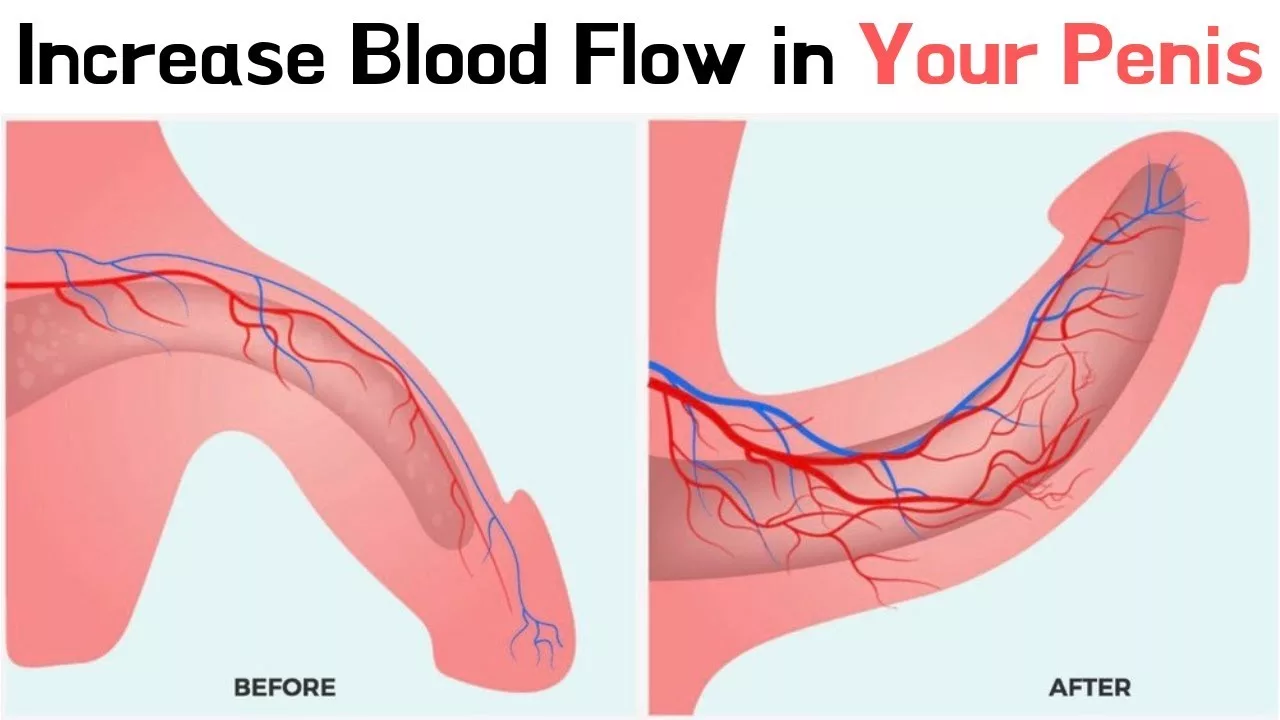Is Erectile Dysfunction Permanent? Understanding the Causes and Solutions
ED in Men | Can Masturbation Cause ED? | Shockwave Therapy for ED
Erectile dysfunction (ED) is a prevalent condition that affects millions of men worldwide. It can be a source of frustration, anxiety, and stress for those who experience it. One common question that arises when dealing with ED is erectile dysfunction permanent. In this comprehensive blog post, we will explore the nature of erectile dysfunction, its potential causes, and the various treatments available. By the end, you will have a better understanding of whether ED is permanent and what steps can be taken to address it.
What is Erectile Dysfunction?

Erectile Dysfunction, often referred to as impotence, is the inability to achieve or sustain an erection firm enough for sexual intercourse. It is essential to distinguish between occasional difficulty achieving an erection and persistent erectile dysfunction. Occasional difficulties can happen to most men and are not necessarily a cause for concern. However, when ED becomes a recurring issue, it may be classified as a medical condition.
How Common Is Erectile Dysfunction?
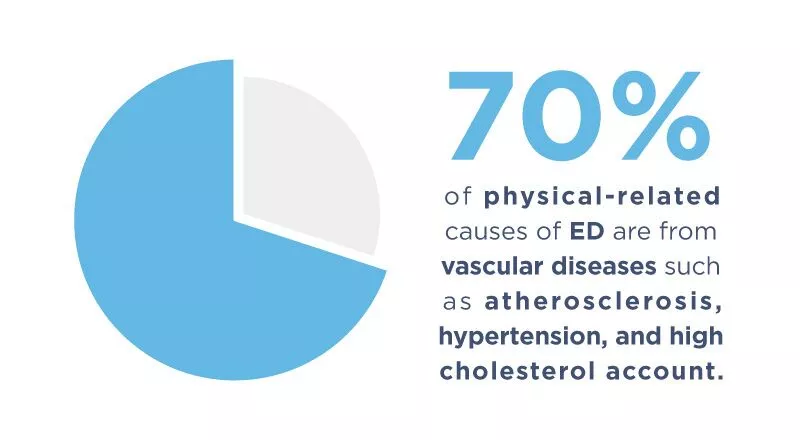
For men, erectile dysfunction (ED) can be a nightmare. Despite being a natural and often reversible condition, many men feel too embarrassed to seek treatment. If you’re experiencing ED, you might feel ashamed to talk about it. However, both you and your partner(s) will feel much better when you understand the causes and treatments.
These data points won’t go soft on you:
- One-third of all men are affected by erectile dysfunction, and the prevalence increases with age.
- Erectile Dysfunction (ED) affects as many as 30 million American men.
- Of all continents, Europe has the highest rate of erectile dysfunction, and South America has the lowest.
- Men with diabetes are 2-3 times more likely to develop ED.
- Vascular diseases such as atherosclerosis, hypertension, and high cholesterol account for 70% of physical-related causes of ED.
- Depressed men are twice as likely to have ED, and many treatments for major depressive disorders can cause ED.
- One survey found that 39% of men with ED never sought treatment for it.
- 36% of men in one survey reported experiencing no side effects from their ED medication.
What Causes Erectile Dysfunction (ED)?
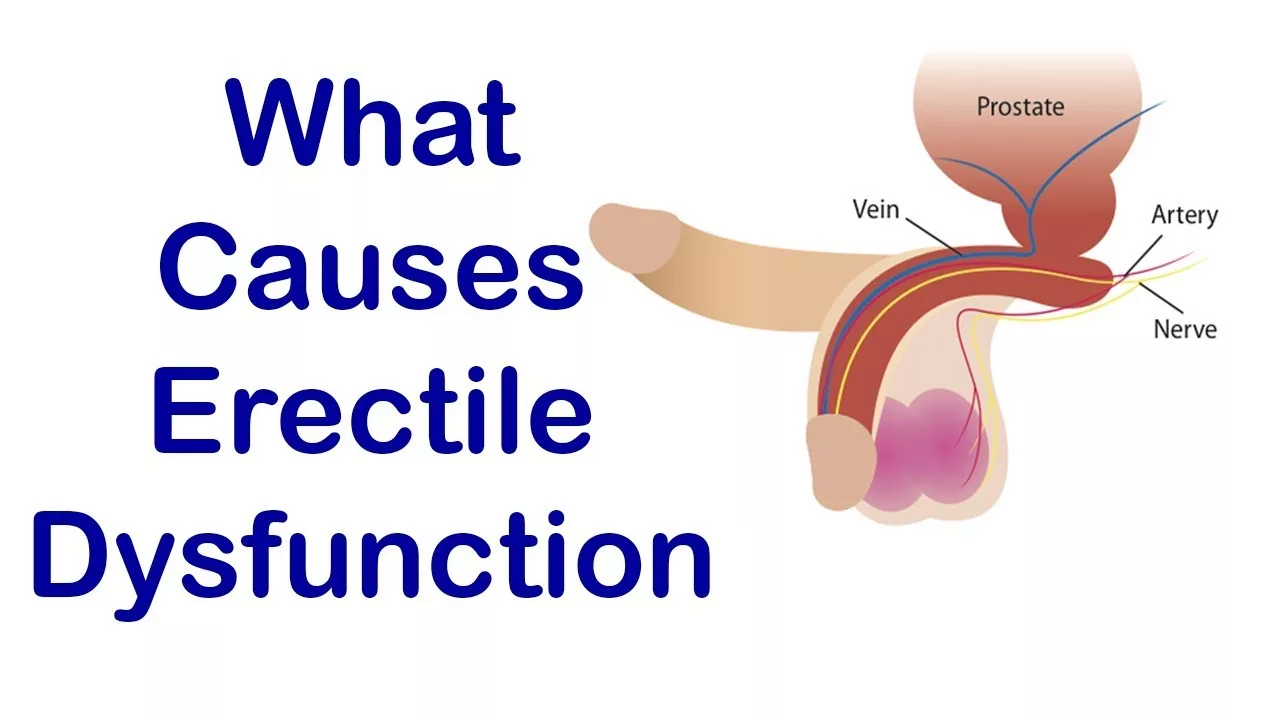
Erectile dysfunction (ED) is a common condition that affects men of all ages, and it can have various underlying causes, which can be physical, psychological, or a combination of both. Understanding the different causes of ED is essential for proper diagnosis and treatment.
Here’s a comprehensive list of potential causes:
1. Physical Causes of ED
Erectile dysfunction (ED) can be caused by various physical factors that affect the body’s ability to achieve and maintain an erection. Understanding these physical causes is crucial for proper diagnosis and treatment.
Here are some of the primary physical causes of ED:
Make an Appointment Now!
a. Cardiovascular Issues: Problems with the heart and blood vessels are among the leading physical causes of ED. Conditions such as atherosclerosis (narrowing of the arteries), high blood pressure (hypertension), and heart disease can reduce blood flow to the penis, making it difficult to achieve and maintain an erection.
b. Neurological Disorders: Conditions that affect the nervous system, including multiple sclerosis, Parkinson’s disease, and spinal cord injuries, can disrupt the transmission of signals from the brain to the penis, leading to ED.
c. Hormonal Imbalances: Low levels of testosterone, the primary male sex hormone, can contribute to ED. Hormonal imbalances, including those related to thyroid function and the pituitary gland, can also play a role.
d. Diabetes: High blood sugar levels associated with diabetes can damage blood vessels and nerves, making it a common cause of ED.
e. Medications: Some medications have ED as a potential side effect. These can include certain antidepressants, antihypertensive drugs, and medications used to treat prostate cancer.
f. Surgery and Radiation: Surgery or radiation therapy for prostate cancer can damage nerves and blood vessels essential for normal erectile function, leading to ED.
g. Peyronie’s Disease: This condition involves the development of fibrous scar tissue inside the penis, causing it to curve and making erections painful or difficult.
2. Psychological Causes of ED
Erectile dysfunction (ED) can have psychological causes, and these factors can play a significant role in the development or exacerbation of ED. It’s essential to understand that ED is often a complex interplay between physical and psychological factors.
Here are some common psychological causes of ED:
a. Stress and Anxiety: Mental stress, performance anxiety, and relationship problems can interfere with the normal sexual response and lead to ED. Stress hormones can constrict blood vessels and reduce blood flow to the penis.
b. Depression: Depression can affect both desire and the ability to maintain an erection. It can also lead to a loss of interest in sexual activity.
c. Low Self-Esteem: Feelings of inadequacy or low self-esteem can contribute to ED by causing psychological barriers to sexual performance.
d. Guilt or Past Trauma: Emotional issues related to past traumatic experiences or guilt can manifest as sexual difficulties, including ED.
3. Lifestyle and Behavioral Factors leading to Erectile Dysfunction
Lifestyle and behavioral factors can significantly contribute to the development of erectile dysfunction (ED). These factors often play a role alongside physical and psychological causes, making it essential to consider them when assessing and addressing ED.
Here are some common lifestyle and behavioral factors that can lead to ED:
a. Smoking: Smoking damages blood vessels and restricts blood flow, which can contribute to ED over time.
b. Alcohol and Substance Abuse: Excessive alcohol consumption and the use of recreational drugs can impair sexual function and contribute to ED.
c. Poor Diet and Lack of Exercise: Obesity, high cholesterol, and a sedentary lifestyle are risk factors for cardiovascular disease, which can indirectly lead to ED by reducing blood flow.
d. Sleep Disorders: Conditions like sleep apnea can disrupt the body’s hormonal balance and lead to ED.
e. Age: While ED is more common in older men due to age-related physical changes, it is not an inevitable part of aging. Many older men can maintain healthy sexual function with appropriate care.
4. Relationship Factors leading to Erectile Dysfunction (ED)
Relationship factors can indeed play a role in the development or exacerbation of erectile dysfunction (ED). While ED is often associated with physical and psychological causes, it is essential to recognize that the quality of a relationship can influence a person’s sexual health.
Here are some relationship factors that can contribute to ED:
a. Communication Issues: Effective communication is essential in any relationship, including a sexual one. Difficulty discussing sexual concerns, desires, or preferences with a partner can lead to stress, anxiety, and a lack of emotional connection, all of which can contribute to ED.
b. Relationship Conflicts: Ongoing conflicts, unresolved issues, or tensions within a relationship can create emotional stress and anxiety, which can negatively impact sexual performance. When individuals feel disconnected or resentful toward their partners, it can be challenging to relax and focus on intimacy.
c. Emotional Distance: Emotional intimacy is a critical component of a healthy sexual relationship. When partners become emotionally distant or disconnected, it can affect their ability to connect physically as well, potentially leading to ED.
d. Lack of Trust: Trust is fundamental in a relationship. If there are trust issues or a history of infidelity or betrayal, it can create emotional barriers that impact sexual performance.
It’s important to note that ED is often a complex interplay of physical and psychological factors. Many men may experience ED due to a combination of causes, making a thorough evaluation by a healthcare provider essential for accurate diagnosis and treatment. Fortunately, there are various effective treatments available, ranging from lifestyle changes and counseling to medications and medical interventions, depending on the underlying cause and individual circumstances.
Is Erectile Dysfunction Permanent?

Whether or not erectile dysfunction is permanent depends on its underlying causes and how it is managed. In many cases, ED is not permanent and can be treated effectively.
Here’s a breakdown of different scenarios:
- Temporary ED: Some men experience temporary ED due to stress, anxiety, or situational factors. In such cases, once the underlying issues are resolved or managed, erectile function often returns to normal.
- Lifestyle-Related ED: Lifestyle factors like smoking, excessive alcohol consumption, and poor diet can contribute to ED. Making positive changes in these areas can lead to significant improvements in erectile function, and ED may not be permanent.
- Medication-Related ED: If ED is a side effect of a specific medication, consulting a healthcare provider to explore alternative medications or dosage adjustments can often resolve the issue without making it permanent.
- Hormonal Imbalances: Erectile dysfunction caused by hormonal imbalances, such as low testosterone, can often be addressed through hormone replacement therapy, which can restore erectile function.
- Chronic Health Conditions: For individuals with chronic health conditions like diabetes or cardiovascular disease, managing these conditions effectively with proper medical care can help prevent ED from becoming permanent.
- Psychological Factors: ED caused by psychological factors such as stress, anxiety, or depression is typically not permanent. Counseling, therapy, or stress management techniques can help address these issues and improve erectile function.
How Long Does Temporary Erectile Dysfunction Last?

Temporary erectile dysfunction, also known as situational or intermittent erectile dysfunction, can cause concern and uncertainty in men. Erectile dysfunction can be a distressing experience for men, raising questions about its duration and potential causes. The duration of temporary ED can vary depending on several factors, including the underlying cause, individual health, and psychological factors. Generally, temporary ED is short-lived and resolves spontaneously or with appropriate interventions. It is important to note that there is no fixed timeline, as the duration can differ from person to person. However, temporary erectile dysfunction typically lasts for a few days to a few weeks.
Treatment Options for Erectile Dysfunction (ED)
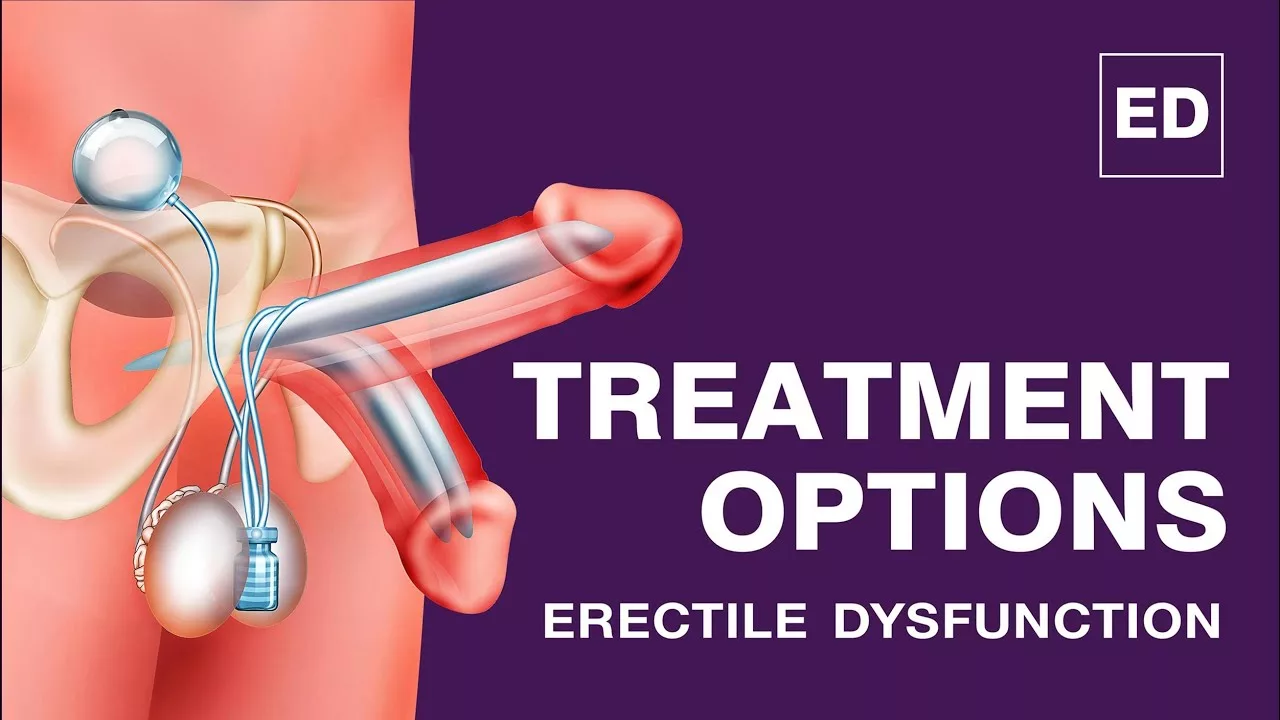
Is Erectile Dysfunction Permanent? Treatment options for erectile dysfunction (ED) vary depending on the underlying causes and individual preferences. ED can result from physical, psychological, or a combination of factors, and the most suitable treatment will be determined after a thorough evaluation by a healthcare provider.
Here are common treatment options for ED:
-
Lifestyle Modifications for ED
a. Healthy Diet: Adopting a balanced diet rich in fruits, vegetables, whole grains, lean proteins, and healthy fats can improve overall cardiovascular health and support erectile function.
b. Regular Exercise: Engaging in regular physical activity can help maintain healthy blood flow and improve vascular health, which is essential for achieving and sustaining erections.
c. Weight Management: Losing excess weight, especially if obesity is a contributing factor, can lead to significant improvements in erectile function.
d. Smoking Cessation: Quitting smoking is crucial as smoking damages blood vessels and restricts blood flow, contributing to ED.
e. Alcohol Moderation: Limiting alcohol consumption, especially before sexual activity, can help prevent temporary ED caused by excessive drinking.
-
Psychological Counseling for ED
a. Therapy or Counseling: For individuals with ED rooted in psychological factors such as stress, anxiety, depression, or relationship issues, therapy or counseling can be highly effective. Therapists can help individuals address these underlying issues, reduce performance anxiety, and improve sexual confidence.
-
Medications for Erectile Dysfunction (ED)
a. Oral Medications: Several prescription medications are available that can enhance blood flow to the penis and assist in achieving and maintaining an erection. These include:
- Sildenafil (Viagra): Typically taken 30 minutes to 4 hours before sexual activity.
- Tadalafil (Cialis): Known for its longer-lasting effects, it can be taken daily or on an as-needed basis.
- Vardenafil (Levitra): Similar to sildenafil and used on an as-needed basis.
- Avanafil (Stendra): Acts more quickly than some other ED medications.
b. Hormone Replacement Therapy: For individuals with low testosterone levels, hormone replacement therapy (HRT) may be recommended to restore hormonal balance and improve sexual function.
-
Vacuum Erection Devices (VEDs) for ED
a. A VED is a non-invasive device that creates a vacuum around the penis, drawing blood into the area to create an erection. This method can be effective for some individuals, especially those who prefer not to use medications.
-
Penile Injections for ED
a. Intracavernosal injections involve injecting medication directly into the base of the penis to stimulate an erection. This method is effective for many men, although it may require some training for self-administration.
-
Penile Implants for ED
a. For individuals with severe or treatment-resistant ED, a penile implant may be considered. This surgical procedure involves placing a prosthesis inside the penis to allow for manual inflation and deflation, enabling erections on demand.
-
Suppositories and Urethral Inserts for ED
a. Medications in suppository or urethral insert form can be placed into the tip of the penis to induce an erection.
-
Alternative and Complementary Therapies for ED
a. Some individuals explore alternative treatments such as herbal supplements, acupuncture, or ginseng. While research on these approaches is ongoing, it’s essential to consult a healthcare provider before trying any alternative treatments.
Call to Book your FREE Consultation
It’s crucial to consult with a healthcare provider or a specialist in sexual medicine to determine the most appropriate treatment based on the underlying causes of ED and individual health factors. Additionally, open communication with a partner and addressing any relationship issues can also be an integral part of ED treatment. With the right approach, many individuals with ED can achieve improved sexual function and satisfaction.
Shockwave Therapy for ED
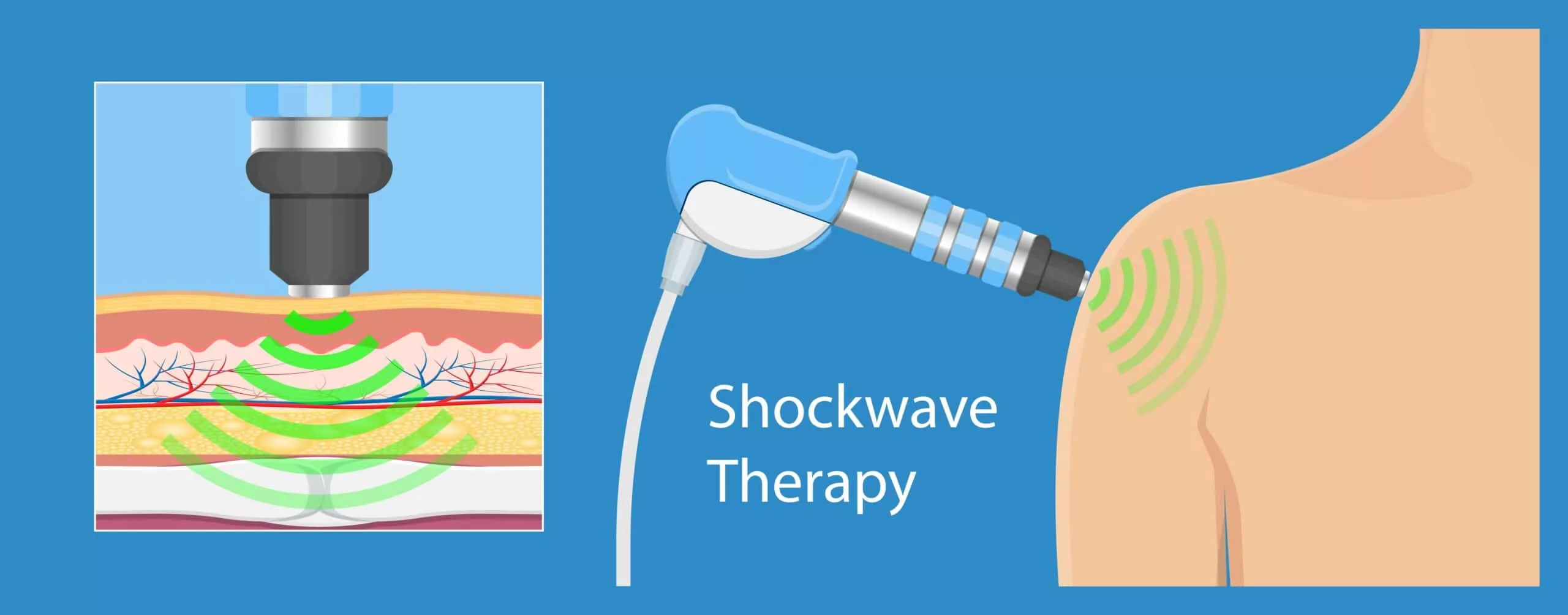
SWT for ED involves applying low-intensity shockwaves to the penis. The shockwaves stimulate the growth of new blood vessels and nerve tissue, which in turn improves blood flow to the penis and helps to increase the quality of erections. The treatment also helps to break down micro-plaque in the penile blood vessels, which can obstruct blood flow and contribute to ED. The shockwaves are delivered through a wand-like device that is placed on the penis. The treatment usually takes around 20 minutes, and patients typically require multiple sessions to achieve optimal results.
Conclusion: Is Erectile Dysfunction Permanent?

In conclusion, whether erectile dysfunction is permanent or not depends on its underlying causes and how it is addressed. ED is often a treatable condition, and many men experience improvements in their erectile function with appropriate interventions, lifestyle changes, and medical treatments. If you or someone you know is dealing with ED, it is essential to seek professional help and explore the available options for improvement. Remember that you are not alone in facing this challenge, and there is hope for a satisfying and fulfilling sex life.
Best Treatment for Erectile Dysfunction (ED) in Dallas, TX
Does erectile dysfunction ever go away?
In many cases, yes, erectile dysfunction can be reversed. A study published in the Journal of Sexual Medicine found a remission rate of 29 percent after 5 years. It is important to note that even when ED cannot be cured, the right treatment can reduce or eliminate symptoms.
Can erectile dysfunction go back to normal?
In most cases, erectile dysfunction (ED) is temporary and can be resolved by improving overall health. But if there's a medical cause like nerve damage or decreased blood flow to the penis, you may need medication. ED is common in men at midlife.
How long does erectile dysfunction last?
Erectile dysfunction (ED) can last a few months to years. Depending on the underlying cause, you may have ED for the rest of your life. According to the fifth edition of the Diagnostic and Statistical Manual of Mental Disorders (DSM V), your erectile problems need to occur for at least six months to count as ED.
How normal is erectile dysfunction?
Erectile dysfunction (ED), also known as impotence, is the inability to get and maintain an erection. Erectile dysfunction is a very common condition, particularly in older men. It is estimated that half of all men between the ages of 40 and 70 will have it to some degree.
What causes weak erection?
Physical issues like heart disease, high cholesterol, high blood pressure, diabetes, obesity, and smoking can all cause erectile dysfunction. On the other hand, depression, anxieties, stress, relationship problems, and other mental health concerns can also interfere with sexual feelings.


